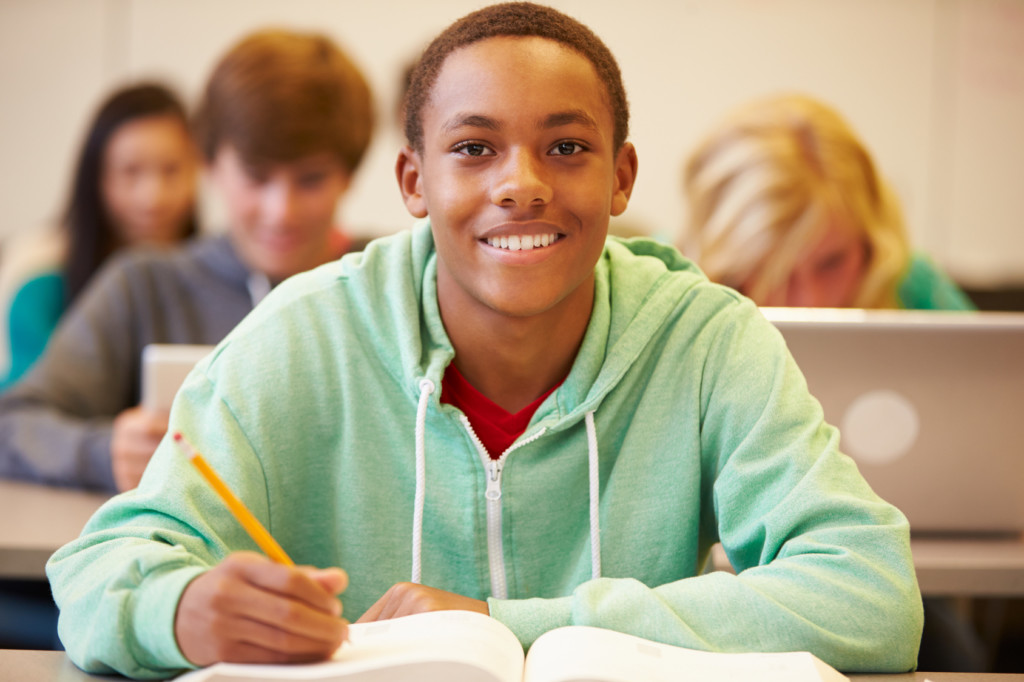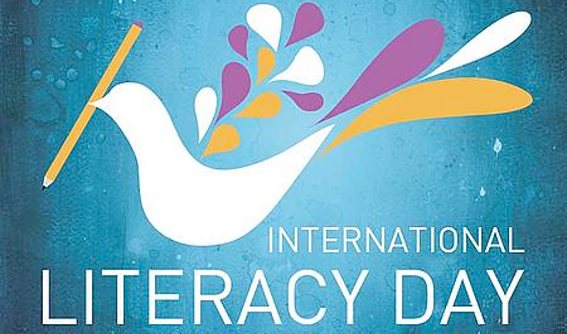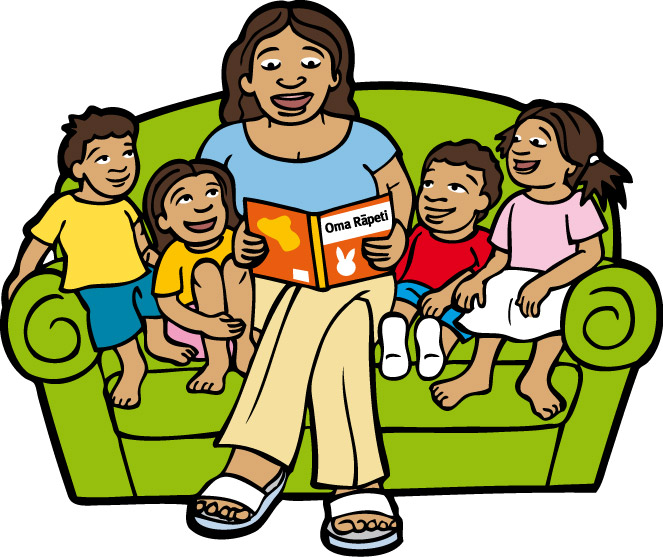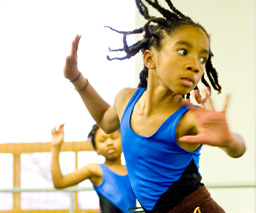Study Tips – 4 Effective Strategies for Student Success | Kellie-Anne Brown-Campbell

FOUR EFFECTIVE STUDY TIPS
Study skills are not only important for GSAT, PEP, Common Entrance, 11+ or SEA (what a mouthful!) but also for the rest of a students academic career and right into college. Standardized tests -Assessments and Diagnostics – are used to measure knowledge and track progress as early as Grade 3. Primary level students must learn to develop healthy, effective and efficient study skills. These “soft skills” help with being successful on tests and exams. They will also inevitably result in reduced levels of stress and anxiety for the student. Here are four important study tips that parents, caregivers and teachers can teach children to employ on a regular basis.
Study Tip #1: Study in ‘batches’
Avoid studying too much all at once!
Despite the old adage – “the more the merrier”, when it comes to studying, too much is NOT better. If students studying for hours at a time without breaks, they will receive diminishing returns. Our brains were made to process only so much information at any one time! Taking short breaks in between study sessions, allows our brains to process, make sense of, and efficiently store the information read. This is especially true for subjects that are very loaded with content such as Social Studies, Science or Religious Education. Short breaks allow the brain to organize the material and prepares the student to retrieve this information more readily. A tired brain is not able to effectively store information in long term memory, making it harder to recall.
A Grade 6 student could study for 20 – 25 minutes with a 10 minute break away from the book with some light physical activity.
Younger students may need to use smaller blocks of time starting with 10-15 minutes in Grade 3.
Study Tip #2: Develop a consistent study routine and schedule
This tip is critical to developing organisation skills, and training the brain and body to be ready and receptive to studying. When we train ourselves to get up at the same time every morning eventually we are able to wake at the same time even without an alarm clock. In the same way we can make our brains more receptive to focused and concentrated work if we study at the same times consistently. Having a schedule that the student develops for him or herself, with the assistance of an adult, helps that student to be more organised and deliberate about studying. Additionally, it helps to develop discipline and accountability, just like when training for a sport.
Study Tip #3: Create a Low-Tech study environment
“Is low-tech possible in this technology age?!?” There is a lot of research available – for both adults and children – on how “disconnecting” helps make us more productive. How many times have you checked WhatsApp since starting to read this article? Too often we adults are “plugged in” to our phones and laptops, teaching our children that these devices are necessary appendages. Even when this does not happen at home, children see this on the television, and other daily encounters.
We have to start training our children to “disconnect” and focus on one thing at a time.
Multitasking is really a myth. When we think about, we realize that technically we cannot give our attention to more than one thing at a time. If your child is writing a composition and has the television on, whenever she looks up to watch, she has stopped working on the composition. Children may say that they can focus on more than one thing at a time, but this is neurologically impossible.
Study Tip #4: Studying and music
Many parents who I have come in contact with throughout my practice have expressed concern about their children listening to music when studying. This is not always a bad idea! But, what type of music? Research has found that more up-tempo music, without lyrics may help improve our mood when studying. Music with lyrics can be distracting. Imagine listening to Pharrell’s “Happy” while studying Social Studies – you may unconsciously break into song! Classical music and music involving sounds of nature may help to calm and relax the mood. Some strains of classical music stimulate the brain making us more receptive to learning and enhancing memory. Research has found that listening to music when doing more repetitive tasks may help us to move faster and enjoy the task more; for example, when filling out a spreadsheet. So, the point is, choice of music is key.
***
Successful students are consistent and disciplined. They make plans and hold themselves accountable. Successful students tend to be self-motivated, able to set goals for themselves and work towards their goals. Throughout the year we must encourage our students to develop healthy habits such as described in these study tips. When exams begin, our students will be in good stead for academic success. The skills instilled by consistent practice of these study tips will place students at an advantage for life.
Written by Kellie-Anne Brown-Campbell, a licensed School Psychologist who conducts educational assessments at Caribbean Tots to Teens.
Learn MoreCelebrating Literacy | Kellie-Anne Brown-Campbell

One of the age old phrases that most of us grew up hearing as young children is “Reading maketh the man”. It was drilled into our heads that to do anything meaningful, and succeed at school and life, literacy skills were critical! According to the Oxford Dictionary online, literacy is defined as “the ability to read and write”, and I would add, “The ability to read and write, at least at your age/grade levels”. It is very important to highlight that literacy is not just related to reading skills, but also covers one’s written expression and written language skills. Reading can be seen as a mode of communication, a way of communicating with the past, a way of reaching into the future. If we think about books, the plethora of books that have been written, one’s mind will be unable to fathom or comprehend the vast array of topics that are covered.
As we teach reading skills, I shall use this platform to highlight that it is equally important to improve and explicitly teach our children writing skills. Many times, persons may not have the power or opportunity to express themselves verbally, but the “power of the pen” cannot be denied. In our local context here in Jamaica, we have assessments of our children’s writing skills as early as Grade Three as part of the Grade Three Literacy and Numeracy Diagnostic Test. A component of the literacy assessment is Communication Task which usually requires students to write a letter on a particular topic, or they may be given pictures from which they will have to construct an organized and well-sequenced story.
International Literacy Day 2017 will be celebrated under the theme, “Literacy in a Digital World”. This theme is quite appropriate as the world is rapidly becoming more digitized. However, the importance of being able to communicate thoughts and ideas in writing (or in typing), will always be an important skill. As my parents used to say “if you don’t read you won’t be able to write well”. Again, we see the inseparable connection between reading and writing. Reading helps children to learn new words and vocabulary, how words are used in context, spelling, etc. Educators, especially those teaching language arts, find that children who are good readers, are also often good writers. It is highly recommended that parents encourage the development of writing skills alongside reading, especially as children progress to higher grades.
As the school year starts let us remember the importance of literacy skills and the fact that these skills need to be directly taught and reinforced, not just at school but also at home. Parents can encourage children to read and write more, and also model the behaviours that they want to see in their children. Some way that parents can help children develop their writing skills include:
- Have young children read material of interest, whether paperback or electronic, and encourage the drawing and simple labelling of pictures/drawings.
- As children get older and reading/spelling skills improve, encourage journal writing or the writing of very simple stories (one or two sentences), accompanied by pictures.
- Encourage reading out loud and the development of writing skills based on material read.
As we celebrate International Literacy Day, let us as parents and educators remember that young children will learn to read, but as they get older they read to learn. Reading can take our children places they may have never dreamed they could go and through reading they are able to build the skills necessary to develop writing skills. We have to be patient in teaching them writing skills. As you read together and write together, just think – You are helping your child to make strides to becoming a better reader, writer and to a larger extent a great communicator!
Written by: Kellie-Anne Brown-Campbell, Licensed Associate School Psychologist
Learn MoreLet’s Get Physical | Marie Reynolds

Children today spend less time engaging in outdoor play and physical activity, and a lot more time indoors in front of one screen or another, whether TV, computer, tablet, smartphone or video game. On a local TV children’s quiz show, the hobby most claimed by participants is “surfing the net.” As children’s physical activity and outdoor play have declined, there has been evidence of increased occurrence of mental health concerns such as anxiety, depression, ADHD and low self-esteem.
Nevertheless, both at home, and in school, children are punished for unacceptable behaviour by having their recess time cut or taken away. As significant exams approach, it is not uncommon for children’s extra-curricular activities and playtime to be significantly reduced or cut altogether so that they can focus on extra lessons and other preparation. However, have we ever considered that children and adolescent’s learning, memory, and focus, as well as mental health and emotional well- being might actually benefit from physical activity and outdoor play?
Aerobic exercise enhances children’s ability to concentrate, think and manage their impulses
All forms of aerobic exercise are helpful, whether running and climbing in outdoor play, more organised sports, P.E. classes, group games, or virtual exercise through the Wii. The more consistently over time children engage in these exercise activities, the more lasting the effects.
Aerobic exercise increases blood flow to the brain and stimulates hormones that regulate memory. Brains develop through children’s experiences, and because the area of the brain responsible for these functions (known as executive functions) continues to develop through to young adulthood, the brain is sensitive to the effects of aerobic exercise. Studies indicate that children and adolescents who engage in moderately intense aerobic exercise over time demonstrate improvement in all aspects of executive function including:
- Controlling behaviour, emotions and attention
- Holding and working with information in memory
- Thinking creatively and adapting to change
- Problem-solving and reasoning
All these functions are vital for both academic and social success.
Exercise enhances self-esteem and promotes positive mood
Through exercise children discover and develop their capabilities. This helps them feel competent and better about themselves. At the same time, exercise releases endorphins, hormones that trigger a positive feeling in the body. Youngsters experience joy in outdoor play or exercise. Not only can exercise help children or adolescents already experiencing depression or low self-esteem, but it is believed to protect against developing issues down the road.
Activities that combine physical exercise with other thinking or social activity have an even greater effect.
Besides aerobic exercise, activities such as classic martial arts, that incorporates character development and self control, or yoga, that combines physical activity with mindfulness, can be especially beneficial. Children’s group games that not only entail exercise, but also require the use of social skills for cooperation, conflict resolution and relationship building, are great activities for enhancing children’s mental health and development.
So, let’s think twice before cutting children’s physical activity as punishment or in favour of academics. Regular exercise or outdoor play may be just the thing they need to improve learning, build self-esteem, enhance creative problem solving, develop healthy management of their emotions and encourage positive socialising.
Written by: Marie Reynolds, Paediatric Psychotherapist
Learn MoreEarly Intervention: When is a Problem, A Problem?
It can be difficult to figure out if a behaviour that you are noticing (or not noticing!) needs special attention. Is it a phase? Will they grow out of it? Am I worrying too much? 
All our children have their own individual personalities and preferences, strengths and challenges, so how do we know when an issue is concerning enough to seek help?
One way of deciding if a behaviour warrants attention is to check it against others the same age. How do most others in their class or their friend group act or cope? Sometimes, even if the same behaviour exists with peers, it may be more intense or frequent for your child which could be an indicator of trouble. Three year olds may tantrum but having a tantrum every day for an extended time would be concerning. Teenagers are notorious for needing their own space (which is developmentally appropriate) but withdrawing from the family and friends and activities they liked should be a warning sign.
Another check can be with other caregivers who see your child. Teachers and doctors both engage with a wide spectrum of children at the same age as your child and can be a good judge on whether a behaviour is atypical or concerning. Don’t hesitate to ask if others have noticed an issue or if they have the same level of concern.
Always keep in mind that children have differing abilities and needs. Even if something seems atypical compared to others, ask yourself whether the behaviour is affecting your child’s life in some way. Is it having an impact on their school life or their social life? This should be the key factor in deciding if an issue needs to be taken care of.
Identifying a problem is just the first step to finding a solution. The earlier a problem is addressed is usually the better the outcomes and less chance of greater problems down the road. If you think something is off or could be wrong, ask around informally. Get other opinions. Get a formal assessment or speak to a specialist. We can all work together to get the best outcomes for our children.
Written by Dr. Shauna Miller, School Psychologist
Learn MoreThe Importance of Reading With Your Child | Kellie-Anne Brown-Campbell

The literature is littered with numerous reports on the fact that parent involvement is a number one factor in predicting early literacy success and later academic achievement. As parents, we often pass off the importance of our roles in the development of our children’s academic skills, especially reading, onto school. Some comments which we may hear are: Why should I read to my child? They do enough of that at school! I am not a teacher! On the contrary, as a parent, you are your child’s NUMBER ONE TEACHER! Children need their parents to act as models through daily reading practice in an effort to successfully navigate through early literacy skills and build on later skills. In this article, I would like to highlight three main reasons why it is important and in fact valuable, to read with and to your children!
- Reading exposes your child to rich language and diverse content. When reading books with your children, they are exposed to a wide vocabulary and more complex and diverse ways of expression, rather than the mundane ways of communication they may experience on a daily basis. Therefore, books allow parents to expand the language environment as they become their children’s first and most important teachers. Parents are therefore able to immerse their children in rich and varied language, sparking interest in information, building imagination and even developing the cornerstones of interest in topics such as science and math. It is therefore a great idea to expose children to not just fictional material, but also non-fictional books.
- Reading with your children helps prepare their minds to succeed in school. The benefits of shared reading know no age limits. Babies are soothed by their parents’ voices; school children reading to parents can show their new accomplishments or seek their parents’ help and books for toddlers can help children get ready to learn to read. Children are used to listening to language for its meaning, but reading demands that they also pay attention to the sounds of language, helping to build phoneme and phonological awareness skills. When reading to your children ask them about rhyming words, homophones, similar syllables, etc. This helps to build a good foundation in language.
- Reading with your child can build family ties and allow for bonding.Reading with your child is most beneficial when parents take it as an opportunity to converse with their children through topics and ideas that come up in the books. Reading together is family time; it is fun time, cuddle time, a time to share your passions, perspective, and your values but also a time to listen. It creates a time for children to express themselves as well as an opportunity for parents to show their willingness to listen. Try it today! Build a conversation around a book and experience the joy of having a conversation with your child!
Written by Kellie-Anne Brown-Campbell, Licensed Associate School Psychologist
Learn MoreAfter GSAT

GSAT results are out!
So, what’s next?!?!
THANK GOD, whoever you perceive Him to be. The examination is done, the grades are out, and primary school is nearly completely finished. You did it, with His help.
HUG YOUR CHILD! Hug your child because their hard work and sacrifice brought them to this point. You were there; you know what they went through. Whatever the placement may be, they worked for it and achieved it. Your child NEEDS to KNOW that you love them. CELEBRATE!
BREATHE. No matter what you can do today, one thing you cannot do is relive the past, so breathe and embrace the future that lies ahead. There will be much preparation to do this summer, lots of running around and ground work:
Uniforms (rules for shoes, hairstyles, socks, school-bags)
Book lists
New students’ handbooks
Orientation schedule
After school activity planning
Learning a new route to school
With all that and more, don’t forget to…
BE GRATEFUL: Remember everyone who helped, prayed, taught, supported your family in one way or another during the difficult preparation. Whether it is a phone call, a short note, a card or a present take the time to be grateful. Teach your child to thank them!
ENJOY THE SUMMER: your baby is growing up. Don’t waste one moment of this summer holiday – enjoy as MUCH as you can, because this is the last summer before high school. Secondary school marks a new phase of life: ever-increasing independence, less confiding in parents, more confiding in friends. Teenagers! But that is for tomorrow,
for today … Rejoice!
Pre-register and save! GSAT: Parenting Seminar
Parents who complete pre-registration on-line pay only $1000.00 on the day of the seminar.
Enter the word: ‘registration’ and your day of choice (Saturday / Sunday)
in the comments box to Pre-register by Sept 7 and SAVE!
Error: Contact form not found.
Learn More











